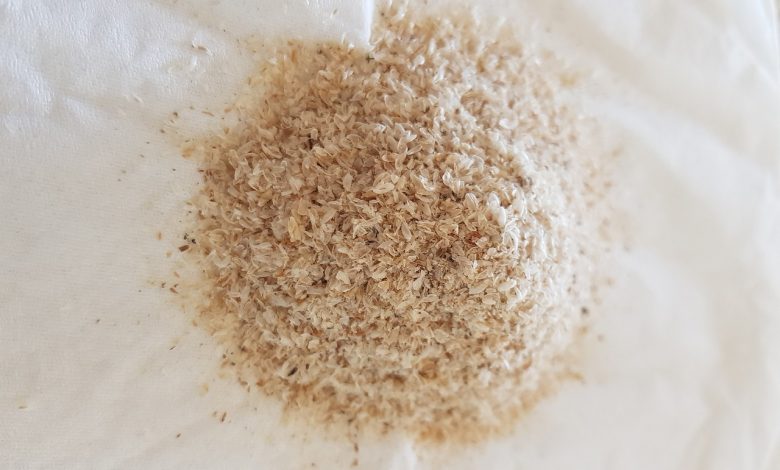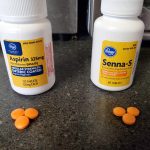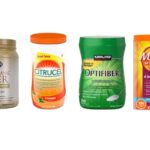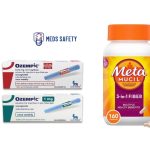Psyllium Husk Cancer Warning: Understanding the Potential Risks

Psyllium husk, derived from the seeds of the Plantago ovata plant, has gained popularity in recent years for its potential health benefits. Commonly used as a dietary supplement, psyllium husk is rich in soluble fiber, which is known to aid in digestion and promote heart health.
While many people incorporate psyllium husk into their daily routines for its positive effects, there have been concerns and discussions about a potential link between psyllium husk consumption and an increased risk of cancer. In this article, we’ll explore the existing research and provide a balanced overview of the current understanding of the relationship between psyllium husk and cancer.
The Benefits of Psyllium Husk
Before we delve into any potential concerns surrounding psyllium husk, it’s crucial to shed light on the multitude of positive attributes that make it a popular dietary supplement. Psyllium husk stands out primarily for its exceptionally high soluble fiber content. This soluble fiber offers a myriad of health benefits that have led to its widespread use and acclaim in various health and wellness circles.
1. Improved Digestive Health: One of the key reasons individuals incorporate psyllium husk into their daily routines is its remarkable impact on digestive health. Psyllium husk is renowned for its natural laxative effect, playing a pivotal role in promoting regular bowel movements and alleviating constipation. The soluble fiber in psyllium husk acts as a bulking agent, absorbing water in the digestive tract and forming a gel-like substance. This softens the stool, making it easier to pass and reducing the discomfort associated with constipation.
Moreover, the gentle yet effective nature of psyllium husk makes it a preferred choice for those seeking a natural and non-irritating solution to address digestive issues. By fostering regularity in bowel movements, psyllium husk contributes to the overall well-being of the digestive system.
2. Cholesterol Management: Another significant health benefit associated with psyllium husk is its potential in managing cholesterol levels. The soluble fiber in psyllium husk has the unique ability to bind with cholesterol in the digestive tract, preventing its absorption into the bloodstream. This process is particularly relevant to low-density lipoprotein (LDL) cholesterol, commonly referred to as “bad” cholesterol.
Studies have indicated that regular consumption of psyllium husk can lead to a reduction in LDL cholesterol levels, thereby contributing to better heart health. By lowering LDL cholesterol, psyllium husk may play a preventive role in cardiovascular diseases, which are a leading cause of morbidity and mortality worldwide.
The cholesterol-lowering effects of psyllium husk make it an attractive option for individuals aiming to manage their cardiovascular health through dietary means. However, it is important to note that while psyllium husk can be a beneficial component of a heart-healthy lifestyle, it should not be considered a sole remedy, and overall dietary habits and lifestyle factors play a crucial role in cardiovascular well-being.
3. Blood Sugar Control: In addition to its impact on digestive and cardiovascular health, psyllium husk has been explored for its potential role in blood sugar control, particularly for individuals with diabetes. Diabetes is a chronic condition characterized by elevated blood sugar levels, and managing these levels is paramount in preventing complications associated with the disease.
Several studies have suggested that the soluble fiber in psyllium husk may contribute to better blood sugar control. The gel-forming nature of psyllium husk may slow down the absorption of glucose, leading to more stable blood sugar levels after meals. This can be particularly beneficial for individuals with diabetes, helping them manage their condition more effectively.
It’s important to emphasize that while psyllium husk shows promise in blood sugar control, individuals with diabetes should consult with healthcare professionals to develop a comprehensive management plan that includes dietary considerations, physical activity, and, when necessary, medications.
The Cancer Concerns
While psyllium husk has gained acclaim for its positive impact on digestive health, cholesterol management, and potential blood sugar control, concerns have emerged within the scientific community regarding its association with an increased risk of cancer, particularly colorectal cancer. These concerns are rooted in the gel-forming nature of psyllium husk, which, when consumed, has led to theoretical discussions about its potential impact on nutrient absorption and alterations in the gut environment that might contribute to cancer development.
One of the primary points of contention revolves around the gel-like substance that psyllium husk forms in the intestines upon consumption. This gel-forming quality is a result of the soluble fiber in psyllium husk absorbing water, creating a viscous material. Some researchers propose that this gel could interfere with the absorption of nutrients in the digestive tract, potentially disrupting the delicate balance necessary for optimal health.
The idea is that changes in nutrient absorption could lead to alterations in the gut environment, creating conditions that might be conducive to cancer development. However, it’s crucial to note that these theoretical concerns are not fully substantiated by concrete evidence, and the actual impact of psyllium husk on nutrient absorption and its subsequent contribution to cancer risk remains a subject of ongoing research and debate.
While the theoretical framework has sparked concerns, the actual evidence linking psyllium husk to an increased risk of cancer, especially colorectal cancer, is limited and inconclusive. While some studies have explored the relationship between certain types of dietary fiber and a reduced risk of colorectal cancer, the specific focus on psyllium husk is not well-established in the scientific literature.
In fact, a longitudinal study spanning 15.4 years and involving over 3,000 colorectal cancer cases examined the association between prebiotic supplement use, specifically those containing psyllium, and colorectal cancer risk. Among the participants, 3.7% of women reported using prebiotic supplements with psyllium. Contrary to concerns about psyllium’s gel-forming nature impacting the gut environment, the study found no association between prebiotic supplement use, including psyllium, and an increased risk of colorectal cancer or mortality. The results provide reassurance regarding the safety of psyllium-containing prebiotic supplements in the context of colorectal health.
It is important to approach the existing studies with a critical eye, recognizing the complexity of cancer development and the multitude of factors that contribute to its onset. The lack of clear and consistent evidence linking psyllium husk to cancer underscores the need for further research to provide a more comprehensive understanding of any potential risks or benefits associated with its consumption.
In evaluating the concerns surrounding psyllium husk and cancer risk, it is crucial to consider the broader context of dietary fiber and its impact on colorectal health. Numerous studies have consistently demonstrated the positive effects of dietary fiber in reducing the risk of colorectal cancer. Fiber, in general, is known to promote bowel regularity, aid in weight management, and create a favorable environment in the colon.
The concern about psyllium husk should be viewed within the larger framework of overall dietary habits and lifestyle factors. A diet rich in diverse fibers from various sources, such as fruits, vegetables, and whole grains, has been associated with a lower risk of colorectal cancer. Therefore, it is essential to recognize that singling out psyllium husk without considering the broader dietary context may not provide a comprehensive understanding of its potential impact on cancer risk.
Conclusion
In conclusion, the concerns surrounding psyllium husk and its potential association with an increased risk of cancer, particularly colorectal cancer, remain theoretical and lack conclusive evidence. While some researchers have proposed mechanisms by which psyllium husk might influence nutrient absorption and gut environment, the existing studies do not provide a clear link between psyllium husk consumption and cancer risk.
As science continues to evolve, ongoing research will be crucial in unraveling the complexities of dietary fiber, including psyllium husk, and its impact on overall health. Individuals with concerns about their dietary choices, especially those with existing health conditions, should engage in open discussions with healthcare professionals to make informed decisions tailored to their specific needs and circumstances. As we await further research, it is essential to maintain a balanced perspective, recognizing the potential benefits of psyllium husk while staying attuned to emerging evidence that may shed light on its role in cancer prevention or development.





